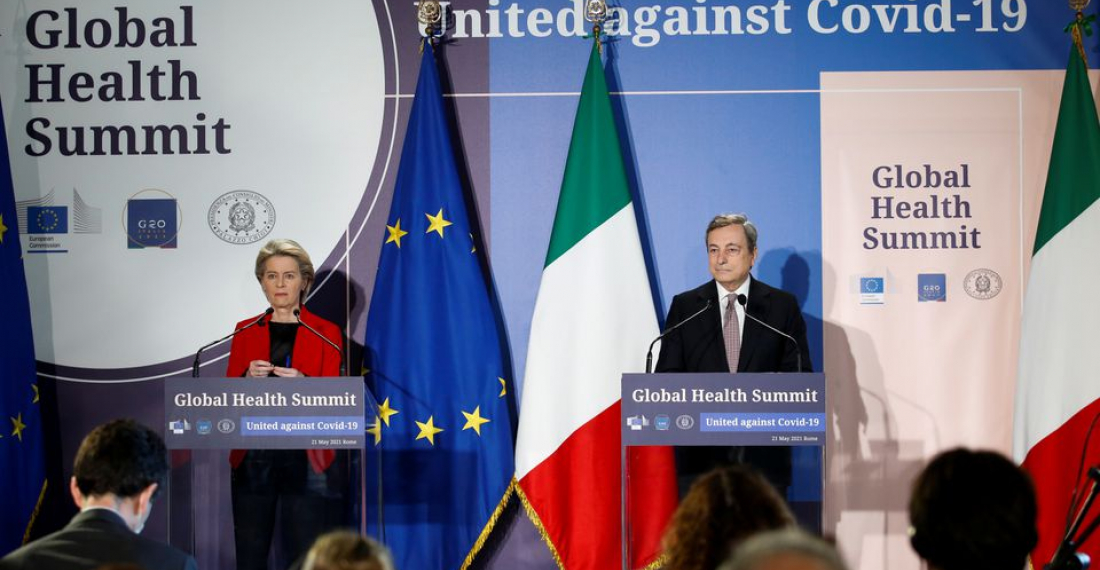The European Union will invest 1 billion euros in constructing vaccine factories in Africa. This will support the continent, which has barely begun to vaccinate against COVID-19, in its efforts to catch up with the rest of the world.
The entire world is hunting for the as-yet limited amount of vaccines. Western countries have the most significant advantage in this matter. Therefore, the head of the European Commission, Ursula van der Leyen believes that Africa must start producing its own vaccines, she said on Friday (21 May).
The EU is also aiming "to donate at least 100 million vaccines to African countries by the end of this year", according to commission chairwoman Ursula von der Leyen.
Von der Leyen made the commitments of the EU at a Global Health Summit of the G20, the world's leading economies, in Rome. Several countries worldwide are pushing for the removal of patent rights on COVID-19 vaccines, which would allow others to produce the vaccines. However, most G20 leaders are more in favour of patent holders making agreements with others to share their rights, knowledge and technology.
In Rome, three leading vaccine manufacturers promised to supply middle- and low-income countries with about 3.5 billion doses this year and next. They will do so at a cost price or a discount, say Pfizer, Moderna and Johnson & Johnson, the parent company of Janssen. Pfizer promised 2 billion doses, Moderna up to 95 million and Johnson & Johnson up to 500 million.







